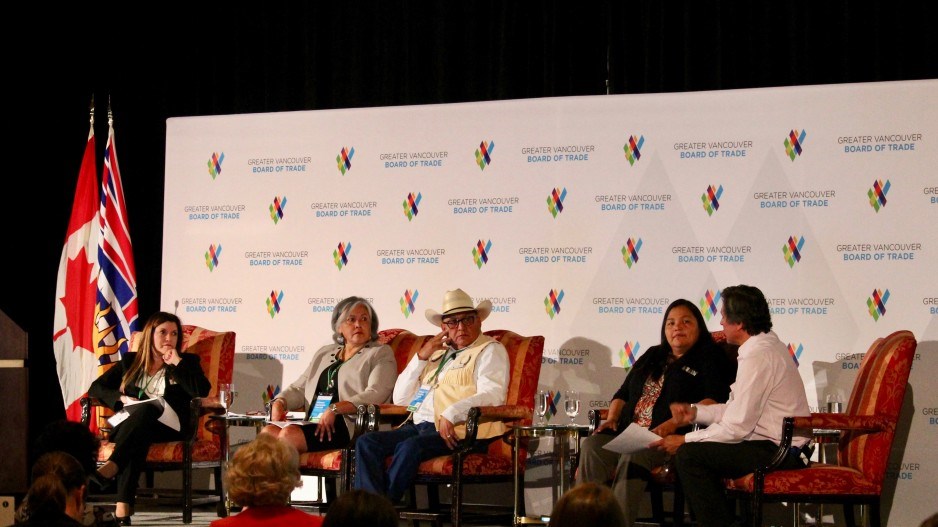B.C.’s Indigenous communities represent a vast untouched commercial opportunity, and businesses are sitting up and paying attention.
At the Indigenous Opportunities Forum 2018 held at the Fairmont Hotel Vancouver Friday (June 22), professionals from a wide variety of sectors gathered to explore the necessity of creating balance between the province’s business community and B.C. First Nations
Kicking off the conference, participants held up the Musqueam Indian Band-YVR Airport Sustainability and Friendship Agreement as an example of the power of partnerships between Aboriginal communities and outside commercial interests.
“This is a 30-year agreement and we are one year in – we are just looking forward at expanding and building upon this relationship,” said Rosalind Campbell, Musqueam councillor and lawyer.
“Nobody knows what’s best for a community other than the community and the community leaders themselves,” Campbell said. “We don’t need [the federal government] being there to tell us what our interests are. We know what they are and we know what they will always be.”
The potential for untapped resources and opportunities on Indigenous land is colossal and inside the forum, attendees did not shy from the fact that strategic partnerships on both sides can yield of vast economic gain in numerous sectors.
According to a 2017 survey by Sodexo Canada, 73% of Canadians want the private sector to step up to help Indigenous entrepreneurs expand their businesses. Additionally, 81% agree that corporations should include Indigenous businesses in their supplier networks whenever possible.
“Having an actual Indigenous strategy in place and getting that endorsed by your company is a key component,” said George Hemeon, manager of aboriginal contracting at TransCanada Corp. (TSX:TRP). “We have about 30 of these strategies focused on employment.”
Hemeon is a senior manager with TransCanada’s Coastal Gaslink Project and previously worked in Indigenous contracting with BC Hydro, Natural Resources Canada and Indian and Northern Affairs Canada.
During a discussion on procurement, Hemeon and other leaders in the construction sector like Ledcor Industries Inc. and Teck Resources Ltd. (TSX:TECK.B) stressed the importance of developing specialized internal roles and operations associated with Indigenous procurement.
“Making the commitment and following through in our process to identify all available opportunities and having people making sure those opportunities are communicated out to all Indigenous businesses is crucial.”
The Canadian Council for Aboriginal Business notes that Indigenous entrepreneurs have established businesses in every province and territory across a range of industries – including natural resources, construction, manufacturing, retail and service sectors. But Aboriginal businesses face a hurdle in the lack of training availability, panellists said.
“We are not getting trained fast enough, we are not getting trained like they are in the Silicon Valley,” said James Delorme, president of First Sky Media Group, a company focused on helping Indigenous communities adopt social media tools and other technologies. “It is nice to see the government support but we have to go a step further.”
“Social media can either make or break a community,” Delorme said. “What I am trying to promote with my company is to work with technology to find a way to get further along that path of reconciliation. We have to have those hard discussions with corporations, with governments, and social media is a way to do that.
“We want to be at the table, and we want to keep having these discussions. The power is there and the tools are there, we just have to keep talking.”




